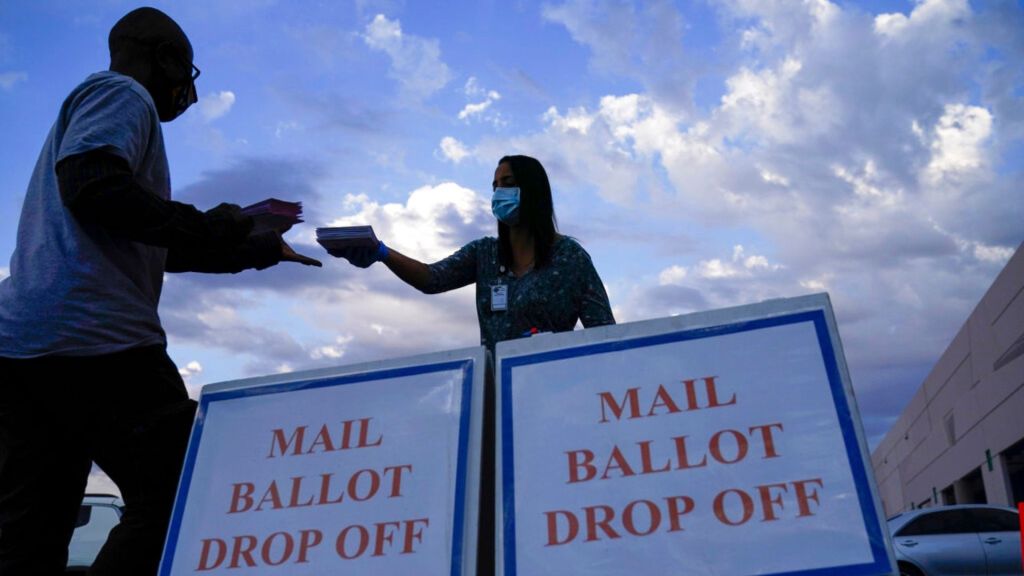By Ashlee Banks
Special to the AFRO
With the presidential election around the corner, politicians and activists are emphasizing the importance of voting in swing states.
There are seven swing states in the U.S., including Arizona, Georgia, Michigan, Nevada, North Carolina, Pennsylvania and Wisconsin. Each state carries a certain number of electoral votes which will ultimately determine who becomes the next commander-in-chief.

(Credit: AP Photo)
Pennsylvania, North Carolina, Michigan and Georgia hold the highest number of electoral votes and usually the candidates who win these states also win the election.
In North Carolina, Georgia and Arizona, eight of the last 12 presidential candidates who declared victory in those states, also won the presidential election. In Michigan, nine of the last 12 presidential candidates who won the state claimed victory in the presidential election as well. In Nevada 10 of the last 12 presidential candidates who won the state won the overall election.
Swing states, also known as battleground states, are significant in any presidential election because voters have a similar level of support for both the Democratic Party and the Republican Party. Voter turnout in each swing state will determine which presidential candidate wins the state and becomes the next U.S. president.
While some swing states traditionally lean Democratic or Republican, recent elections have proven that voters are willing to break with tradition. Experts believe that could happen again in the upcoming presidential election.
The key issues for voters that could flip a few swing states are the economy, restoring democracy, immigration, abortion, housing affordability and overall healthcare.
U.S. Rep. Glenn Ivey (D-Md.-4) told the AFRO that the presidential election is going to be one “where every vote counts.”
“The presidential swing states are going to be maybe some of the closest of all time…and every vote can make a difference,” said Ivey. “Even in states that are not battleground states at the presidential level, they’ve got a lot of close races down ballot.”
The Maryland lawmaker is encouraging everyone to get out and vote.
“We have ancestors that fought and died for this right and I can look in western North Carolina and these communities got wiped out by back-to-back hurricanes and they’re voting in record numbers,” said Ivey.
And yet voters in more fortunate circumstances – some of whom may not even have to wait in line during early voting – are not taking advantage of their access.
He added, “It’s just kind of a shame that there are so many people who are very cavalier about exercising that right.”
U.S. Rep. Jasmine Crockett (D-Texas-30) told the AFRO that citizens living in swing states bear a heavy obligation because their votes count more than those living in other states.
“They are the ones that are going to determine this election. Pretty much my state has already been put over into Donald Trump’s column. Doesn’t mean that I haven’t obviously gone out and done my civic duty,” said Crockett. “But, until we get more resources into the state of Texas and better organization, we can’t expect to be as competitive as say, Pennsylvania, Michigan, North Carolina, Wisconsin, Arizona, Nevada, Georgia.”
The Texas lawmaker told the AFRO that she is on the campaign trail to advocate for constituents in her district and state. She emphasized that Texas is not a battleground state, however, voters in swing states hold the power to ensure that Texans and citizens in other states are not subjected to harsh laws that penalize things like abortion.
“I try to make it very plain for people that it’s not just about your state selecting. It’s about your state selecting, not only the president of the United States, the leader of the free world and the one person that may be able to literally save lives in this country,” said Crockett.
The post Lawmakers highlight importance of voting in swing states appeared first on AFRO American Newspapers.











